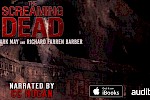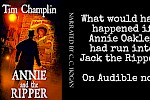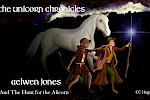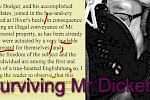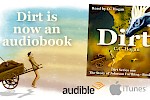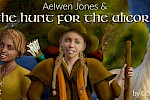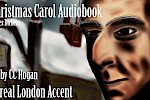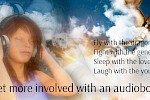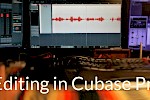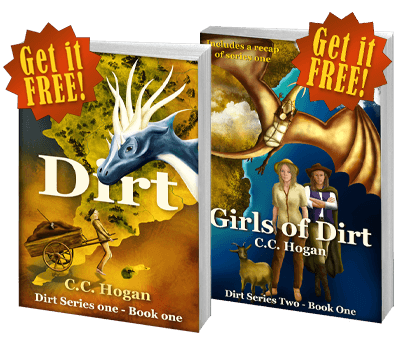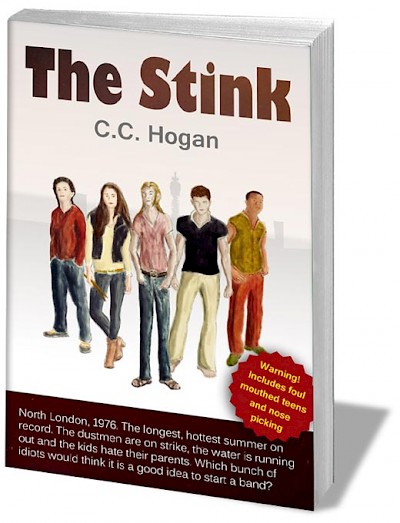Fantasy is not as far from reality as one might think.
If I ignore dragons and magicians for the moment, the rest of my cast of characters in Dirt are human beings without technology. If they want to eat they might have to catch it first, if they want to go anywhere they are plodding along on a horse or on foot, and if they build anything it might take them months, or longer. Did you know that the Leaning Tower of Pisa took 199 years to build?
My experience as a human being has involved things like buses and planes, telecommunications, take out, supermarkets and even roller skates (okay, that was a while ago, I admit.) All of which leaves me very unprepared if I were to be dropped in the middle of Bind on the Bekon Moors, or worse, in the Eastern Plains or Jerr-Vone! (look them up).
So, although I did not start out to try and educate myself about more ancient ways of life, as I have wandered through my world I have looked up a huge assortment of things; it has proved rather interesting.
I have to say, I have stolen from everywhere. There was a Roman general who had a lot to say about the speed of infantry, though I very quickly abandoned the idea of making my armies anywhere near as efficient. Then there was the interesting titbit that over many days, infantry will outpace cavalry (soldiers do not need to be put out to pasture).
Boating
Boats nearly messed me up. I had in mind a certain speed and worked out a daily distance in leagues (I did everything in leagues using the calculation of 1 league = 3.45 miles). However, I had forgotten two things. Firstly, boats can go 24 hours a day without stopping, assuming the wind is good and both moons are up. That shortened my travel times dramatically. Damn! But then I also made the mistake of looking up the speeds of sailing vessels that were far too modern. Modern vessels have better hulls - better shape and smoother - and do twice the speed of their ancestors. Old caravels (very old) did between 4 and 8 knots downhill with the wind behind them. At an average of 6 knots that is 2 leagues per hour. If the tides are against them they can actually go backwards!
Four Legged Friends (and six)
Horses have been quite fun. I wanted to invent some breeds, but I had to make sure they were actually practical. So I basically gave new names to some usefully shaped existings one. I have two horses that come up frequently. One is the Bekon Browns. These are great, big, draught horses; very powerful and evenly tempered. They could be any of the big shires that we have bred up over the centuries, like the Belgian Heavy (note: all big horses are bred and NONE are natural). The other horse I had was a Colny; much favoured by the Knights of the Western Kingdom. They are a silver-grey horse with white mane, a little like a Percheron. Some I did not rename. Mistry gets herself a Strawberry Roan, which are a touch cute! It allowed me to have a running gag about a pink horse that annoys her. Mistry is into her horses.
Since I have dragons, which are Hexapods (4 legs, 2 wings), I wanted a few other six-limbed animals. The one that comes up most is the Rathen (called Oothen on Bind) which is a large, six legged bison, more or less, though much bigger. One of these will pull as much as two or more Bekon Browns, but are slower and stubborn as hell. However, a little like cattle, they will plod on for hours, so they will actually travel further in a day in the right conditions.
Din-Dins
Food has a major role in my books, probably because I am rather fond of it. Most of my characters will judge a village based on the quality of the food at the tavern; if the landlord cooks good food, then it is a sign of village prosperity and happiness. I really believe this is true, though in our society it has been undermined by the horrible, horrible chains.
I didn't need to do as much research here since I am a bit of a cook anyway, but still, I have gone to the trouble of writing up the recipes for the food sold in my taverns so I can make sure they would have the right ingredients available in their part of the wilderness. This is an earlier age and most food is based on what is grown locally. When you shop in your supermarket, most of the product is imported, even if is it is from just another part of your own country. Also, food is seasonal. So, in summer, you would be served fresh pork, perhaps. In winter, it would be smoked and cured. The garlic is fresh in the good months, smoked and dried in the other months, same with the herbs. Tomatoes are only found for a handful of weeks a year. Fresh, soft, goats cheese goes off quickly, so will appear in batches - hard cheese keeps months. It is not surprising, therefore, that the poor of the world live on dried beans and peas, flavoured up with some cheese if they can afford it. Meat would be a rarity, unless you hunt, and event then, depending on your location, you may spend days hunting for a handful of birds.
As a result, even the best of my taverns only serve two dishes and two beers. "Goat Pie or the cheese platter, love?"
Oh, yeah, Dirt seems to have a lot of goats!
Local Resources
The continent of Bind, more than The Prelates, is a huge continent with a small population. Unlike our own world, Dirt is not heavily forested. Oh, there are forests, big ones too, but it is a land or moors, plains, heaths and deserts mostly. It is also resource hungry. Iron is hard to find as is coal. This has slowed progress compared to our own world and that mixed with thousands of years of barbaric or at least selfish dynasties has left Dirt stuck in a medieval way of life - often even more primitive than that.
So, your local resources can make a difference to your way of life. I Discovered that some coal is better for making steel than others, for instance, and that means that steel quality can vary considerably over a continent. The areas that make better steel will have better weapons and better trade.
Salt is very valuable for both preserving and for tanning leather. But did you know you can use animal brains for tanning if you don't have salt? I didn't, but I do now.
Longbows and other Weapons
I have watched so many youtube videos of people firing bows that my head hurts!
The longbow is very important to my story as it allows for different tactics army to army. Inspired by the battle of Agincourt, where the English had the Longbow advantage, I realised I could use this to balance up numbers in battles and create some interesting side stories. It is probably more important in the second series, but even in series one, it makes a statement.
I wanted to create some bangs, but I did not want cannons and muskets. Black powder has become Blackdust and Greek Fire is turned into Desert Fire. They are not quite like the originals, but a bit of reading up by me and my people have had some fun doing some very original blowing up! It has an interesting effect on dragons. They have very, very good hearing and really do not like loud bangs!
The most important weapon, of course, is loyalty, and I read up so much about why certain generals and leaders were more successful than others. Much of it boiled down to how they interacted with their troups and inspired them, not just ordered them around. That was very useful to learn and I was able to create differences between different leaders. Interesting stuff!
Weather and Geography
Oh dear, an accident waiting to happen this one. For us a river is that thing that is beneath a bridge somewhere, until it rains. In earlier times most rivers had NO bridges. So you might travel many, many leagues before you can cross. If it floods, you may be stuck for weeks.
Likewise, if it stops raining and the streams dry up, you die of thirst really easily. No taps to turn on, no dams storing water, no bottle water from the local drug store. Just death, loitering on the corner.
In a primitive society travel takes months. So you might start off on a nice summer's day, but the other end of your journey might be in winter. So time lines are vital as is knowing how to look after horses in bad weather, even if it is just a character who wants to pick up some extra blankets from the next village for the horses at night. More research required!
I also have dragons which fly. They are not very fast and they tire quickly and need to land, rest and eat (not too often or they can't fly!) They are bigger than your average sparrow, you see. However, they can breathe at very high altitudes so, as long as they are not carrying a pesky human, they can take advantage of the High Winds - the jet streams in some places. This means they hardly need to flap and can go for hours.
To underline how this works, I have invented Scimrafugol - Sun Birds, which are like very large Albatross. They, like their real cousins, can fly ten thousand miles without stopping, probably longer, and the dragons will sometimes "Follow the Scimra" to find the winds. Pleased with that one, I was, but I had to read up on winds and Albatrosses to make it work. It ended up a very important plot point several times.
And that is not all
I have read up on fire lighting, harnessing horses, wagon construction, feudal systems, slavery, oh, the list is endless.
A lot of this wont actually appear in the books, but making sure my world actually works and has a believable and, more importantly, familiar foundation, means that my readers can just enjoy the story because it kind of makes sense to them. I don't have to explain everything, but from time to time, one of my characters will drive a wagon over a stream or need to fly somewhere in a hurry or will eat a nice pie in a pub, and that they can comment casually and get it right (or wrong, if that is what is needed), just adds that moment of flavour. It may be only be, "We better graze the horses tomorrow and give them a day of rest," but that just helps make them all the more real and make the world of Dirt real too.
Dirt may have dragons and a sprinkling of strange magic, but underneath is a place where people live and survive, or don't. I want that to be a proper place, a place I would recognise if I landed there, which I do every day, of course.











